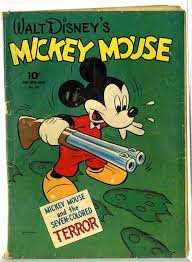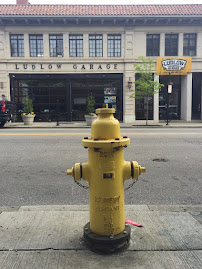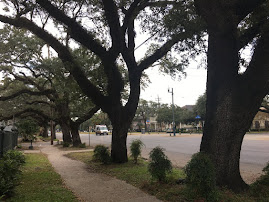Dear George,
Every year
about this time there’s a local media frenzy about whether Pete Rose, former
Cincinnati Reds all-star, ought to be reinstated to baseball (and hence
eligible for consideration for the Hall of Fame). Rose, of course, was banished from baseball in 1989 for
gambling. While there’s no
question that Rose did break baseball’s prohibition on gambling, local fans
overwhelmingly think that he’s “done his time” and should become eligible for
Hall of Fame election. Every
national poll of fans has come up with the same sentiment. The new baseball commissioner, Rob Manfred,
has said that he will be reviewing Rose’s case. No one seems to know how he will rule. Here’s some of the background.
Pete Rose's Cincinnati
roots. Rose was born in
Cincinnati on April 14, 1941. He
played baseball and football locally at Western Hills High School. He had used up his four years of sports
eligibility by his senior year, so in the spring of 1960 he joined a Class AA
team in the Dayton Amateur League.
Rose played catcher, second base, and shortstop and had a .626 batting
average. His uncle Buddy Bloebaum
was a scout for the Reds and urged them to take a chance on Pete. Rose signed a professional contract
with the Reds upon graduating from Western Hills High. Rose made the club and had his major
league debut on April 8, 1963, against the Pittsburgh Pirates. Hitting .273 for the season, he was
named the National League Rookie of the Year. He
played for the Reds from 1963 to 1978, then with the Philadelphia Phillies
(1979-1983) and the Montreal Expos (1984), finishing his playing career with
the Reds from 1984 to 1986. He was the Reds’ manager from 1984 to
1989. (12) [Note: numbers in parentheses refer to
sources at end.]
Rose’s
Hall of Fame career. Pete Rose
currently holds 17 Major League records, including hits (4,256), games played
(3,562), times at bat (14,053), times on base (5,929), singles (3,215), outs
(10,328), and most seasons of 200 or more hits (10; shared). He had a
career batting average of .303, 160 home runs, and 1,314 runs batted in.
He won three National League batting titles (1968, 1969, 1973), one Most
Valuable Player Award (1973), the World Series MVP (1975), two Gold Gloves, the
Rookie of the Year Award (1963), and three World Series championship
rings. He is the only player in baseball history to make All-Star
appearances (seventeen) at five different positions: first base, second base,
third base, left field, and right field. In 1999 he was selected by a
panel of experts as an outfielder on the Major League Baseball All-Century
Team. (9, 12)
Baseball’s
rule against gambling. Baseball’s
rule against gambling was written after the 1919 Chicago “Black Sox” scandal in
which gamblers paid a number of Chicago White Sox players to throw games and to
lose the World Series. The rule specified a lifetime ban for players
involved in gambling, with no provision for appeal or reinstatement. (4)
Rose’s
gambling. As a consequence of
reports that he had bet on baseball, outgoing commissioner Peter Ueberroth and
his replacement, Bart Giamatti, questioned Rose about gambling in 1989. Giamatti then hired lawyer John M. Dowd
to investigation the charges.
According to the 1989 Dowd report, Rose bet on up to 10 games a night in
various sports at about $2,000 a game. The report indicated that Rose bet
on Reds games during the 1985, 1986, and 1987 years while he was a
manager. Rose denied for over 15 years that he had bet on baseball, but
he did finally admit in 2004 that he bet on the Reds to win every night as a
manager. Dowd claimed there was evidence suggesting that Rose also bet on
his team to lose, though that evidence was not firm enough to include in Dowd’s
report. Dowd’s investigation found that Rose owed at least $250,000 to a
New Jersey loan shark with ties to organized crime in New York City, and he now
says that those debts could have been as high as $500,000. Dowd also
concluded that Rose was involved in buying cocaine as a way to pay off his
gambling debts. He also later suggested the indebtedness of up to half a
million dollars to gamblers could have serious repercussions on a manager’s
behavior. According to the Cincinnati Enquirer, FBI agents worked behind
the scenes with New Jersey bookies and loan sharks to insure that hundreds of
thousands of dollars of Rose’s gambling debts would be forgiven. Legal
experts have concluded that the Dowd report is solid and conclusively demonstrates
that Rose bet on baseball. As Ohio
Hall of Fame baseball reporter Hal McCoy observed, "the major problem with
Rose betting on baseball, particularly the Reds, is that as manager he could
control games, make decisions that could enhance his chances of winning his
bets, thus jeopardizing the integrity of the game." (4, 12)
Rose’s
ban. Rose was permanently
banned from baseball in 1989 by then-commissioner Bart Giamatti for betting on
baseball while he was manager of the Reds. Rose voluntarily accepted a permanent
place on baseball’s ineligible list and waited to apply for reinstatement until
1992, although he could have done so after one year. The ban meant that
Rose can’t appear at any official Major League Baseball function, nor can he
take part in any pre- or post-game festivity involving the Reds or the Phillies
where he played for five years. In addition, the Hall of Fame 1in 1990
banished any player on the ineligible list for consideration to the Hall. Rose was and is the only player on that
list. (2, 7, 12)
Rose’s
application for reinstatement.
Rose applied to newly appointed Major League Baseball Commissioner Rob
Manfred in March 2015, and Manfred said he would meet privately with Rose and
consider the request. He also said he would review the 1989 Dowd Report
and the agreement Rose reached with then-commissioner Bart Giamatti.
(4) Manfred has said that he is
“not predisposed on the issue, in any direction.” (7)
Reasons
not to reinstate Pete Rose.
There’s a lot of discussion, pro and con, regarding whether Pete Rose
should be reinstated and consequently eligible for baseball’s Hall of
Fame. Here are some of the main
con arguments:
- Baseball’s Rule 21 explicitly and unequivocally
calls for a permanent ban for gambling. (6)
- Rule 21 and Rose’s permanent ban is a reason why
baseball hasn’t had another gambling case in 26 years. (3) Reinstatement would do irreparable
harm to a highly effective deterrent. (6)
- Rose himself contributed to the severity of his
punishment by denying his misdeeds and challenging the credibility of his
critics. (8)
- Rose was fully aware of the potential
repercussions of his actions when he performed them. (11)
Reasons to
reinstate Pete Rose.
- Recognized as one of the greatest players of all
times, Rose made major contributions to the game of baseball, including
being a role model for thousands of players and fans. (bos) With
reinstatement, Rose will get the recognition in the Hall of Fame that he
deserves. (3)
- Rose was never accused of fixing games. (1)
- Banned for 26 years since 1989, Rose lost his
reputation, his main livelihood, and his tie to organized baseball.
In effect, he has “served his time.” (3) (8)
- With his knowledge and enthusiasm, Rose can be a
positive asset for baseball. (1)
- Major League Baseball has already permitted Rose
to participate in a 1999 All-Century Team celebration, as well as Reds’
festivities marking the 25th anniversary of his record-setting 4,192nd
hit. (1)
- At age 73, Rose is not going to affect the
outcome of games by playing or managing. (1)
- Steroid users, whose rule violations directly
affect game performance, are eligible to be voted on for the Hall of
Fame. (1a)
- Gambling is a disease, an addiction in its own
right. (1a)
- In comparable cases in professional sports, the NFL
in 1963 suspended Detroit Lions’ Alex Karras and Green Bay Packers’ Paul
Hornung for one season for gambling, including betting on their own
teams. (1)
- With Rose’s ban for over 25 years, Baseball has
successfully demonstrated that its rules, especially regarding gambling,
must be respected. (3)
My
opinion. Pete Rose told an
ESPN reporter, “I’ve been led to believe America is a forgiving country, and if
you do the right things – keep your nose clean, be a good citizen, pay your
taxes, do all the things you’re supposed to do – eventually you’ll get a second
chance.” (1) I agree. Pete Rose is the only living player who
is ineligible for consideration for the Hall of Fame, though he is arguably the
most eligible living player on the basis of his on-field performance. If you’re happening to read this blog,
Rob Manfred, we hope you’ll give Pete Rose due consideration.



















































































































































No comments:
Post a Comment